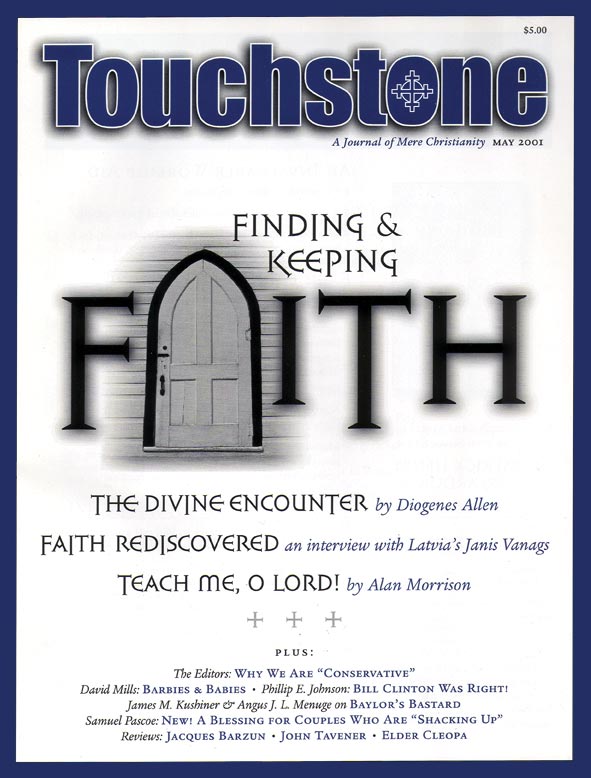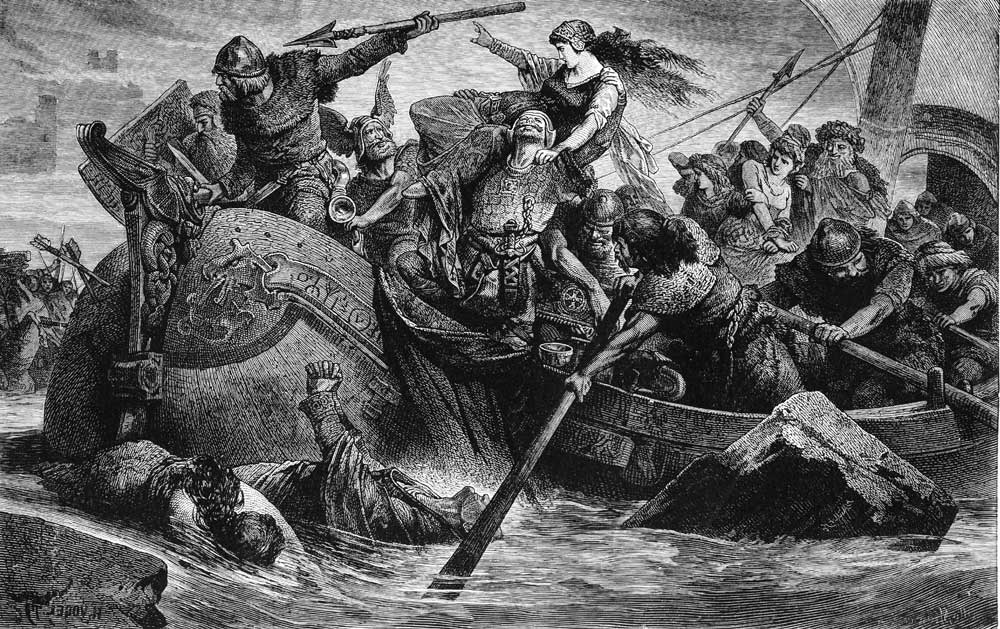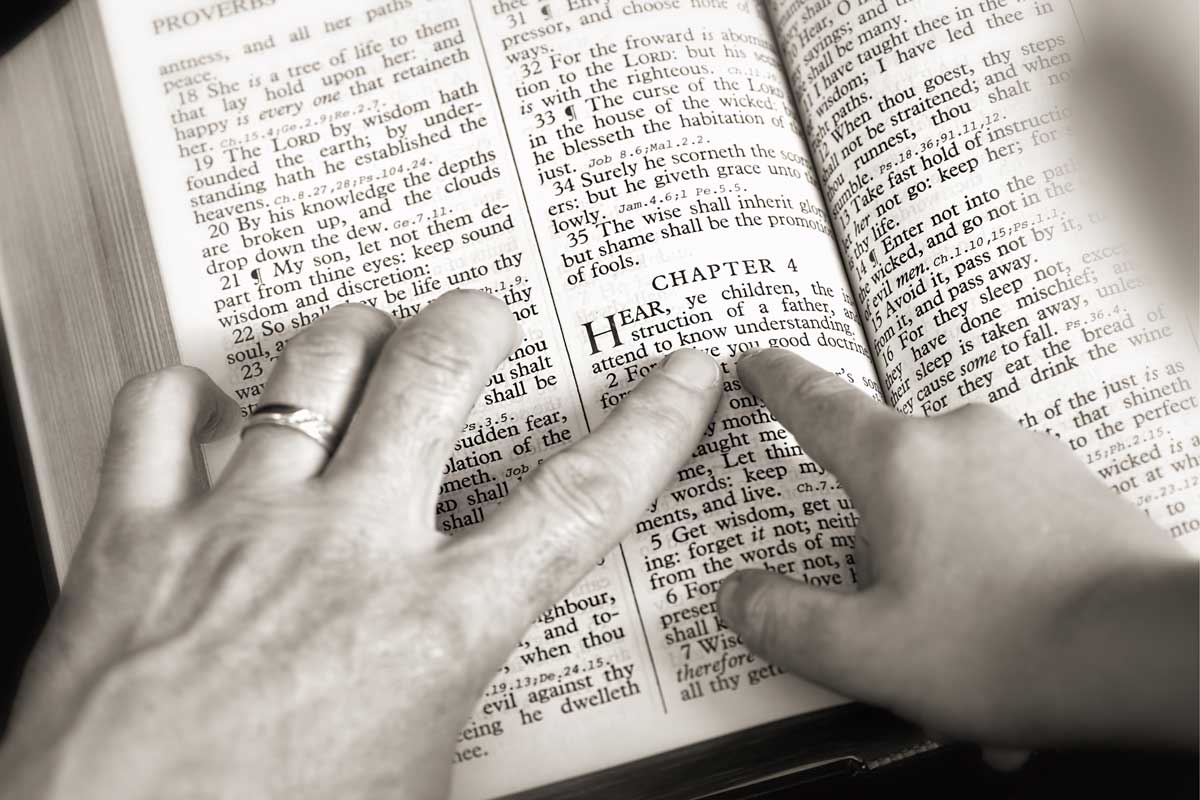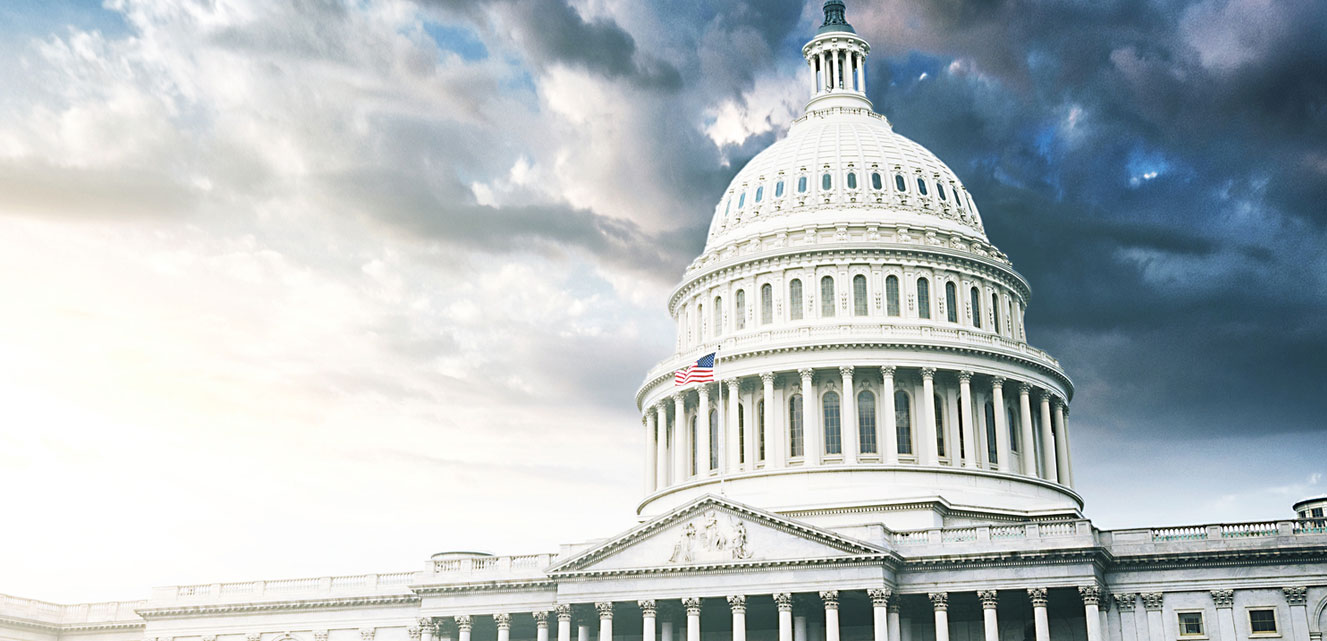History Free & Clear
Patrick Henry Reardon on the Errors of Determinism
We are beginning a new millennium, which most of us, I suppose, hope will also be an occasion of really new beginnings. For this to happen—that is, for any of us truly to begin anew—it seems important speedily to dismiss two commonly accepted notions often expressed in popular slogans.
These slogans are “what will be will be” and “history always repeats itself.” These ideas appear, of course, in other disguises, some very much more sophisticated. Both can be found dressed up in the language of sociological and psychological determinism, delivered in the jargon and with the authority of full professors at famous institutions.
The ideas are, nevertheless, still very bad ones. Let me suggest that no one would really want to live in the world these slogans describe; at the very least, they take the fun out of life.
What Will Be
“What will be will be,” a philosophy popularized, if I recall correctly, by Doris Day, says that everything is already determined anyway, so don’t worry about it. It is the theory of Fate, whether in the Oedipus of Sophocles or the Lolita of Nabokov. In short, the events of our existence are pre-scheduled, and there’s not a whole lot we can do about it.
Let us be sure we understand this: To say that everything is determined is to say that everything happens of necessity. Think about this very hard: Necessity and possibility are mutually exclusive. If everything is necessary, then nothing is possible. If “what will be will be,” of nothing can we say, “maybe it will and maybe it won’t.”
If necessity covers everything, possibility covers nothing, and choice is illusory. Even what seems to be a new bonnet is just old hat. In such a universe there is no room to maneuver; life is so tight, so controlled, that there is no “give” or “play” in it. All conclusions are foregone conclusions.
Now as a point or matter of elementary logic, one can hardly conceive any idea less favorable to really new beginnings than the thesis that life has no possibilities, that everything has already been determined anyway, whether such determination is caused by God’s almighty will (as in Islamic doctrine), or by an impersonal fortune (according to many sources from Homer to Schopenhauer), or by material and mechanical forces (taught by Hobbes and others), or, more recently, by social dynamics (according to the popular theories of, say, B. F. Skinner).
I am not sure I can imagine any notion less compatible with the biblical and Christian teaching on history than one that says, “what will be will be.” To say, as the Bible and the Church have always insisted on saying, that we are responsible beings answerable to God for our lives and our moral decisions is to assert that our choices are really free, that we have a real say about what will be, that we do not simply act from compulsory forces outside our control, that what comes forth from us is not just the sum total of the influences brought to bear upon us, that “it is not what enters a man from without that defiles him.”
If, for example, I take a hammer and fling it at the unsuspecting (but probably deserving) head of my friend Ralph, the hammer itself, having no say over the matter, cannot be held responsible for what happens to the skull of that unfortunate gentleman. But if “what will be will be,” if my throwing of that hammer has been pre-determined, if it is only the sum total of the influences brought to bear upon me, if the action is simply caused either by God’s will or by social dynamics or by anything else, then I am no more responsible than the inert hammer. If my human choice really does not exist, the hammer and I are equally unaccountable for the fate of poor Ralph and his grieving head.
We have it on the highest authority that “not what enters into a man from without defiles him” but what “proceeds from his heart” (cf. Matt. 15:17–20; Mark 7:18–23). In very large measure, what will be will be what we choose it to be. Human decision is a beginning, not a result. “The error,” said G. K. Chesterton, “is in always treating the soul as a product and never treating it as an origin.”
The Muslim, the Stoic, and the social determinist all say “what will be will be,” but the Christian will insist that the future is really fertile with new and genuine possibilities, things that truly may or may not be, attainable realities open to the heart’s choice. The biblical and Christian dogma of human freedom, then, is one of the indispensable components of all new beginnings. So, happy new millennium!
History Repeats Itself
The second slogan for our consideration is one that we hear all the time; it is a truism that, like so many truisms, doesn’t have a word of truth to it: “History repeats itself.” The person who says such a thing does not know much history, and even less philosophy.
Closer to the truth, but maybe still a bit shy of it, is the much quoted mot of Santayana that those who do not know their history are doomed to repeat it. This saying at least has the merit of suggesting that one of the purposes of history is to keep ourselves from renewing its mistakes. Perhaps it would be a more ample expression of the truth to say that we study history to find out what will work in human life and what won’t.
Like the Hebrews in Holy Scripture, the Greeks of antiquity tried to learn lessons from history. Indeed, it was from these two cultural sources that the very concept of “history” made its way into our thinking.
History in this sense differs profoundly from what is called Natural History. Natural History studies constant, repeated, and highly predictable patterns. It is really a branch or aspect of natural science. What an animal or plant will do, how it will react to its environment, is absolutely determined by the influences brought to bear upon it. Given the same environment, a bird builds her nest always the same way, and a beaver his dam, while contented cows wander the earth in predictable, even boring, patterns.
A certain college professor of anthropology once told me that animals could think, an assertion that proved to me that the professor himself probably couldn’t. The ability to think is (leaving out God and angels for the moment) properly human. It always involves an act of choice; strictly speaking, as Chesterton remarks someplace, all thought is free thought. Thinking requires decision, and animals do not make decisions; they follow impulses.
It would be very remarkable indeed, if suddenly the bird, driven by some mathematical and engineering disposition that we never suspected in her, were to add some new structural component to her nest—a second story, say, or central heating. And it would be marvelous beyond words if the beaver, hitherto drowning miserably in his long historical backwater, should commence adorning his dam with little statues of the great, wise, and heroic beavers of yesteryear. And suppose the cow, sick unto death of wandering all these generations upon the earth, to and fro, up and down, should call a press conference to announce a new space program that would permit her, at long last, to jump over the moon.
At such points Natural History would become real history in the sense that we use it of human beings. History, you see, means that events cannot be predicted along the lines of previous patterns; it means that new and unexpected things are to be expected, because human beings can really make them happen.
History is about possible things that actually happen, not necessary things that inevitably happen. The abilities to decide and to think are what make real history possible. It is expected of human beings that they will do unexpected things. This is what we call history, and it most certainly does not repeat itself. “History repeats itself” is wrong for the same reason that “what will be will be” is wrong.
Discouraging Slogans
Both slogans leave out human freedom. And not only do they leave out human freedom, they also, like most slogans, discourage human thought. And this, as I said, takes the fun out of life. You may remember that in Orthodoxy Chesterton referred to a materialist named McCabe and noted that “He understands everything, and everything does not seem worth understanding.”
“It is absurd,” Chesterton continued, “to say that you are especially advancing freedom when you only use free thought to destroy free will. The determinists come to bind, not to loose.” It is a great irony that most movements that seek to liberate us, liberate us from the things that make us free.
“You may say,” wrote Chesterton, “. . . that the bold determinist speculator is free to disbelieve in the reality of the will. But it is a much more massive and important fact that he is not free to praise, to curse, to thank, to justify, to urge, to punish, to resist temptations, to incite mobs, to make New Year resolutions, to pardon sinners, to rebuke tyrants, or even to say ‘thank you’ for the mustard.”
The person who says “what will be will be” is usually trying to make life bearable, when he is, you see, actually making it a bore. •
Patrick Henry Reardon is pastor emeritus of All Saints Antiochian Orthodox Church in Chicago, Illinois, and the author of numerous books, including, most recently, Out of Step with God: Orthodox Christian Reflections on the Book of Numbers (Ancient Faith Publishing, 2019).
subscription options
Order
Print/Online Subscription

Get six issues (one year) of Touchstone PLUS full online access including pdf downloads for only $39.95. That's only $3.34 per month!
Order
Online Only
Subscription

Get a one-year full-access subscription to the Touchstone online archives for only $19.95. That's only $1.66 per month!
bulk subscriptions
Order Touchstone subscriptions in bulk and save $10 per sub! Each subscription includes 6 issues of Touchstone plus full online access to touchstonemag.com—including archives, videos, and pdf downloads of recent issues for only $29.95 each! Great for churches or study groups.
Transactions will be processed on a secure server.
more on history from the online archives
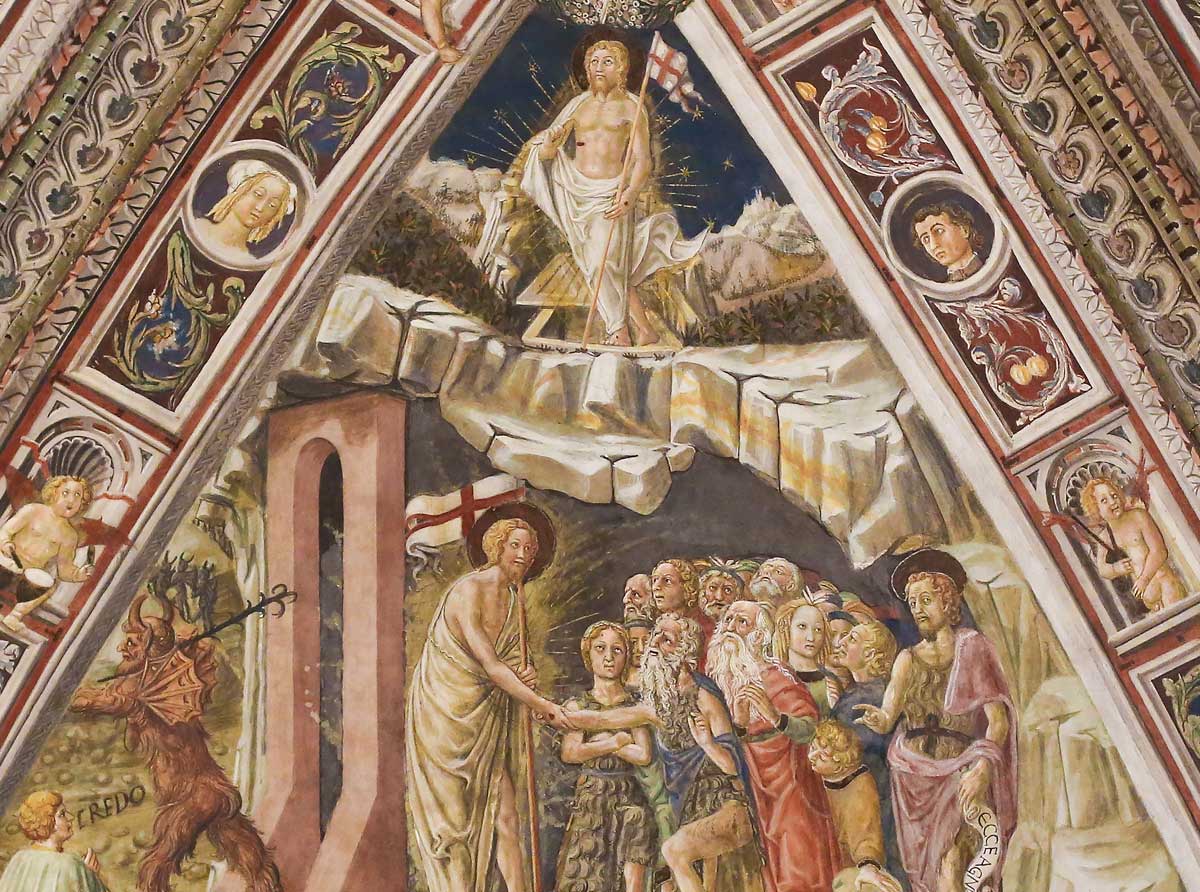
14.6—July/August 2001
The Transformed Relics of the Fall
on the Fulfillment of History in Christ by Patrick Henry Reardon

15.6—July/August 2002
Things Hidden Since the Beginning of the World
The Shape of Divine Providence & Human History by James Hitchcock
more from the online archives
calling all readers
Please Donate
"There are magazines worth reading but few worth saving . . . Touchstone is just such a magazine."
—Alice von Hildebrand
"Here we do not concede one square millimeter of territory to falsehood, folly, contemporary sentimentality, or fashion. We speak the truth, and let God be our judge. . . . Touchstone is the one committedly Christian conservative journal."
—Anthony Esolen, Touchstone senior editor






